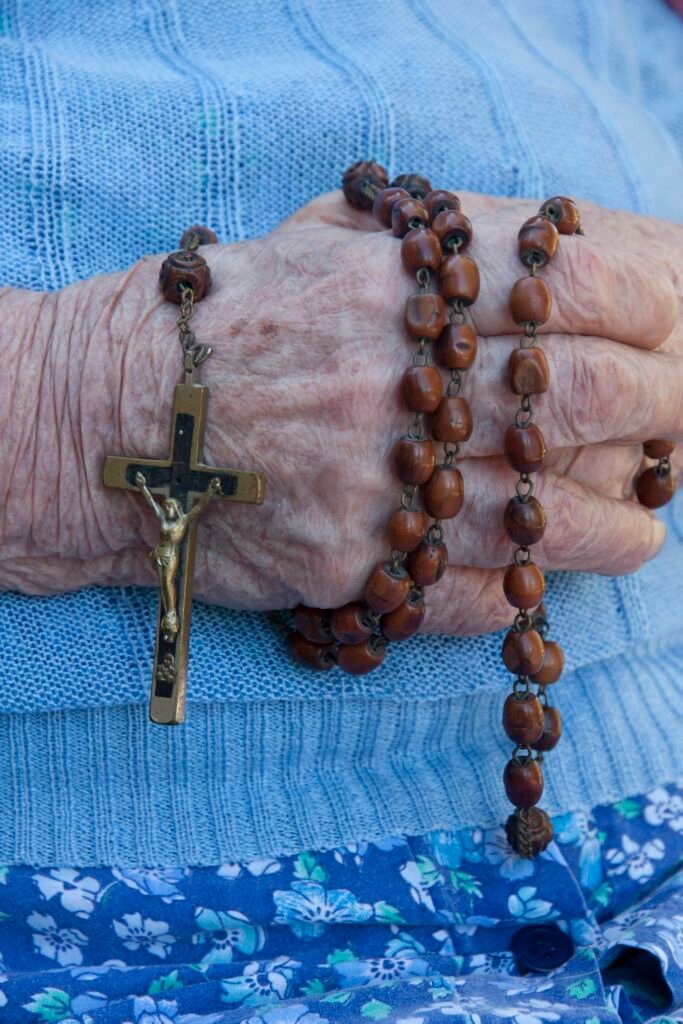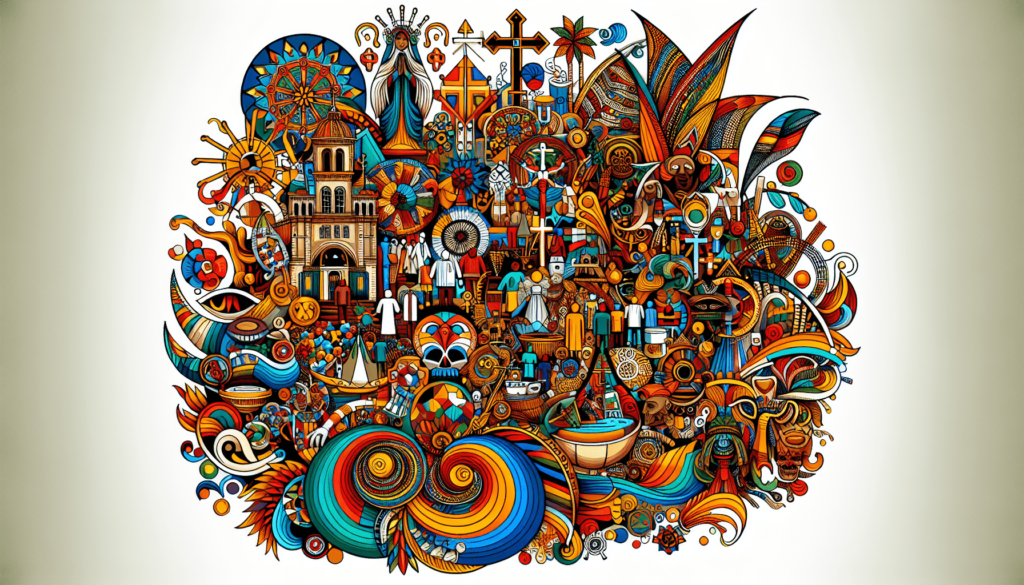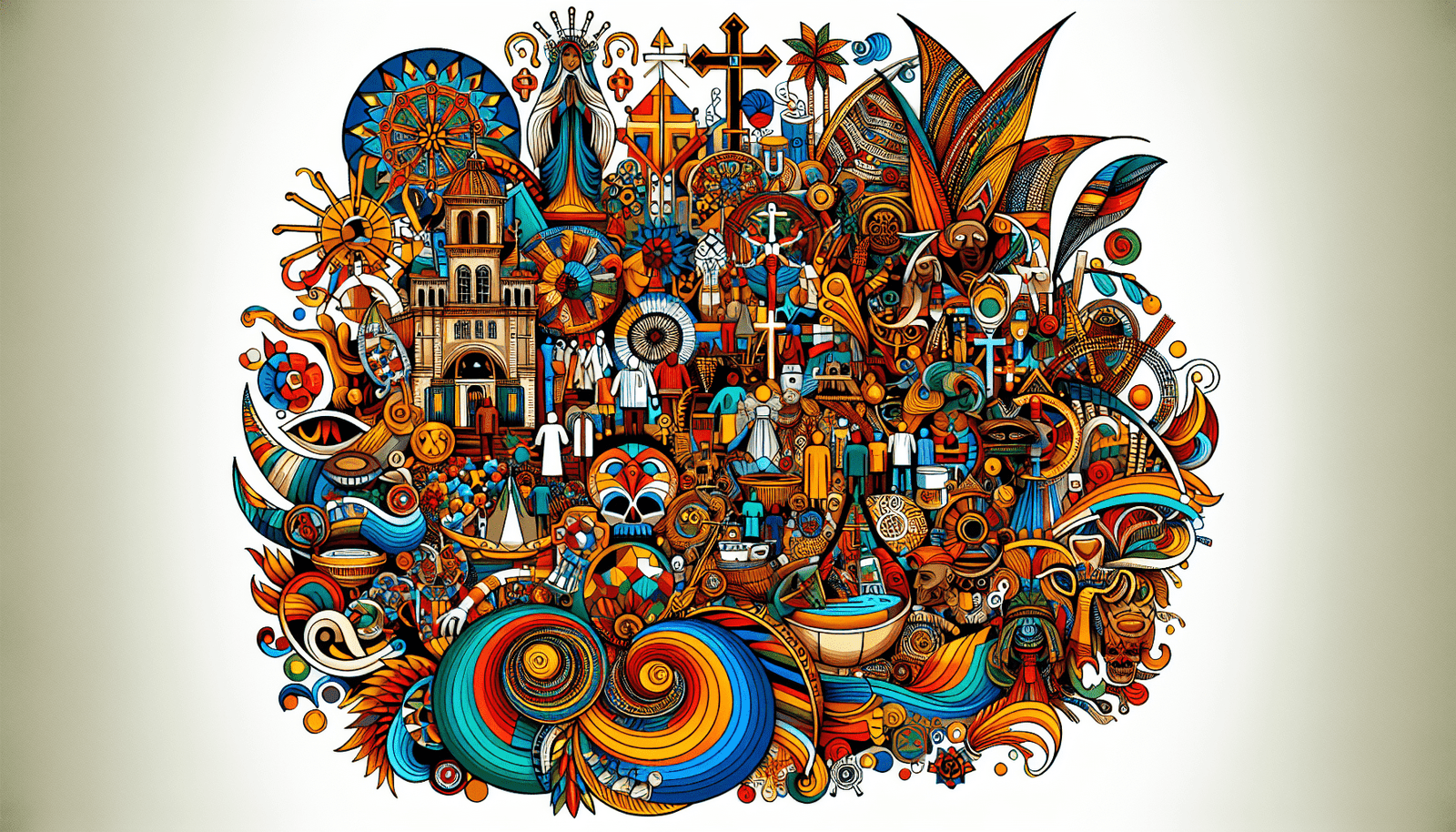Caribbean culture is known for its vibrant and diverse traditions, and one of the key elements that shapes this unique identity is religion. From ancient indigenous beliefs to the influence of Christianity, religion plays a crucial role in the daily lives of Caribbean people. It serves as a guiding force, influencing everything from social interactions to artistic expressions, and provides a sense of unity and belonging within the community. In this article, we will explore the multifaceted role of religion in Caribbean culture and its impact on various aspects of life in the region.
Introduction to Caribbean Culture
The Caribbean region is renowned for its vibrant and diverse culture, which is heavily influenced by the historical factors that have shaped its development over the centuries. From the indigenous people who first inhabited the islands to the impact of European colonialism, the Caribbean’s culture is a fascinating blend of different traditions, languages, and religions. In this article, we will explore the various facets of Caribbean culture, with a particular focus on the role of religion in shaping the identity and social cohesion of the region.
Overview of the Caribbean region
The Caribbean region, also known as the West Indies, comprises more than 700 islands, islets, and reefs. With its stunning beaches, tropical climate, and unique flora and fauna, the Caribbean has long been a popular destination for tourists from around the world. The region is divided into a number of territories, including sovereign states, overseas departments, and dependencies. English, Spanish, French, Dutch, and Creole are among the languages spoken in the Caribbean, reflecting the diverse colonial history of the region.
Diversity of Caribbean cultures
One of the defining features of Caribbean culture is its remarkable diversity. The region is home to a multitude of ethnic groups, including Africans, Europeans, Indigenous peoples, and people of Asian descent. Each of these groups has contributed to the rich tapestry of Caribbean culture, with their own unique traditions, customs, and ways of life. From food and music to art and fashion, the Caribbean’s cultural landscape is a testament to the blending of different influences and the celebration of diversity.
Influence of historical factors on Caribbean culture
The history of the Caribbean is deeply intertwined with the legacies of colonialism and slavery. European powers such as Spain, France, and Britain, sought to establish their dominance in the region, leading to the subjugation and exploitation of the indigenous populations and the importation of African slaves. These historical factors have had a profound impact on Caribbean culture, shaping everything from its language and religion to its social structures and economic systems. Understanding the historical context is crucial to appreciating the complexity and resilience of the Caribbean’s cultural heritage.
Religious Diversity in the Caribbean
Religion plays a central role in Caribbean culture, with a wide range of beliefs and practices being observed throughout the region. Major religions in the Caribbean include Christianity, Hinduism, Islam, and various Indigenous and Afro-Caribbean religions. The Caribbean’s religious landscape is characterized by a remarkable degree of syncretism, which refers to the blending of different religious traditions to create unique and hybrid practices. This syncretism is a testament to the region’s history of cultural exchange and the resilience of its diverse religious communities.
Major religions in the Caribbean
Christianity is the dominant religion in the Caribbean, with the majority of the population identifying as either Catholic or Protestant. The introduction of Christianity to the region can be traced back to the arrival of European colonizers, who sought to convert the indigenous populations to their faith. Today, the Caribbean is home to a vibrant and diverse Christian community, with each island having its own unique traditions and practices. Hinduism and Islam are also widely practiced in the Caribbean, particularly among the Indo-Caribbean and Afro-Caribbean communities.
Importance of syncretism in Caribbean religions
One of the most fascinating aspects of Caribbean religion is the prevalence of syncretism, which refers to the blending of different religious traditions and beliefs. This syncretism is the result of centuries of cultural exchange and the need for enslaved Africans to adapt their religious practices in the face of colonial oppression. As a result, many Caribbean religions, such as Vodou in Haiti and Santería in Cuba, combine elements of African spirituality with Christian symbolism and rituals. This blending of different traditions has resulted in the emergence of new religious practices that are unique to the Caribbean.
Influence of African traditions on Caribbean religions
The influence of African traditions on Caribbean religions is undeniable. Enslaved Africans brought with them a rich tapestry of beliefs, rituals, and practices, which have since been incorporated into the religious fabric of the Caribbean. African religions, such as Yoruba and Kongo, form the foundation of many Afro-Caribbean spiritual traditions, with concepts such as ancestor worship, spirit possession, and divination playing a central role. The resilience of these African traditions in the face of colonial oppression is a testament to the strength and cultural identity of the Caribbean’s African diaspora.

Indigenous Caribbean religions
Despite the tragic decimation of the Indigenous populations of the Caribbean during the colonial era, traces of their ancient religious practices still remain. The Indigenous peoples of the Caribbean had their own unique spiritual traditions, which were intimately connected to the natural world and the cycles of life. Elements of these indigenous religions can still be found in the beliefs and rituals of contemporary Caribbean communities. The preservation and revitalization of Indigenous Caribbean religions is an important aspect of cultural preservation and reclaiming ancestral heritage.
Colonialism and Religion in the Caribbean
European colonialism had a profound impact on religious practices in the Caribbean, as colonizers sought to convert the indigenous populations to Christianity. This process involved the forced conversion and suppression of indigenous beliefs, often accompanied by violence and cultural erasure. The introduction of Christianity to the Caribbean was not a peaceful or voluntary transition, but rather a tool of colonial domination. Despite these oppressive conditions, Caribbean communities managed to maintain their cultural and spiritual identities by blending their traditional beliefs with elements of Christianity, resulting in the hybrid religious practices seen today.
Impact of European colonialism on religious practices
European colonial powers forcibly converted enslaved Africans and Indigenous peoples to Christianity, often using violent and coercive means. The aim was to erase their traditional religious beliefs and practices in favor of the religion of their colonizers. These practices were deeply rooted in the ideology of cultural superiority and the desire to control and subjugate the enslaved populations. The impact of this history is still felt today, as Caribbean communities grapple with the legacy of colonialism and the ongoing challenges of preserving their cultural and religious traditions.
Forced conversion and suppression of indigenous beliefs
The forced conversion of Caribbean Indigenous peoples to Christianity was a deliberate strategy employed by European colonizers to eradicate their traditional beliefs. This process involved the destruction of sacred sites, the suppression of indigenous rituals and ceremonies, and the demonization of traditional practices. The aim was to not only assert colonial control but also to undermine the cultural autonomy and spiritual sovereignty of the Indigenous populations. Despite these efforts, traces of indigenous beliefs and practices have endured, providing a source of resilience and cultural revival for Caribbean Indigenous communities.
Introduction of Christianity in the Caribbean
The introduction of Christianity to the Caribbean can be traced back to the arrival of Christopher Columbus in 1492. Spanish and Portuguese colonizers brought Catholicism with them, while Protestant denominations such as Anglicanism, Methodism, and Presbyterianism were introduced by British, Dutch, and French settlers. The spread of Christianity in the Caribbean was closely tied to the establishment of colonial rule, with churches and missionary schools being used as tools of social control and cultural assimilation. Today, Christianity continues to be a dominant religious force in the Caribbean, albeit with distinct regional variations.
Syncretism and hybrid religious practices
The process of syncretism, whereby different religious traditions blend together to form new hybrid practices, has been a key feature of Caribbean religion since the colonial era. This syncretism was a way for enslaved Africans and Indigenous peoples to resist cultural erasure and maintain a connection to their ancestral spiritual beliefs. In the Caribbean, syncretism can be seen in practices such as combining African deities with Christian saints, merging Christian rituals with traditional Indigenous ceremonies, and incorporating elements of Hindu and Islamic spirituality into Afro-Caribbean traditions. This blending of different traditions is a testament to the resilience and adaptability of Caribbean religious communities.
Influence of Religion on Caribbean Identity
Religion plays a significant role in shaping the identity of the Caribbean people. Religious rituals, festivals, music, and art are all integral parts of Caribbean culture, helping to define a sense of belonging and providing a framework for social interaction and community cohesion. Religious beliefs and values permeate all aspects of Caribbean society, influencing everything from family life and education to politics and social activism. The fusion of different religious traditions has created a unique cultural identity that is distinctly Caribbean, reflecting the region’s history of diversity and resilience.
Religious rituals and festivals
Caribbean religious rituals and festivals are vibrant and colorful celebrations that bring communities together in worship and celebration. Examples include Carnival in Trinidad and Tobago, which combines music, dance, and elaborate costumes, and Easter celebrations in Jamaica, marked by church services, processions, and feasting. These rituals often have deep historical and cultural significance, serving as a way to honor ancestors, seek blessings, and reinforce religious beliefs. They also provide an opportunity for Caribbean communities to express their cultural identity and showcase their artistic talents.

Religious music and dance
Music and dance are integral components of Caribbean religious practices, with a rich variety of musical genres and dance forms being associated with different religious traditions. In Christianity, gospel music and soulful hymns are a prominent feature of worship, while in Afro-Caribbean religions, drumming and rhythmic movements are used to invoke ancestral spirits and induce trance-like states. The blending of African, European, and Indigenous music and dance styles has given rise to the vibrant and lively genres of reggae, calypso, salsa, and zouk, which have become iconic symbols of Caribbean culture.
Religious art and symbols
Religious art and symbols are prevalent throughout the Caribbean, serving as visual representations of faith and spirituality. Churches and temples are adorned with statues, paintings, and stained glass windows depicting religious figures and scenes, while religious symbols such as crosses, crescents, and pentagrams are worn as jewelry and displayed in homes and public spaces. The artistry and craftsmanship of religious artifacts in the Caribbean reflect the region’s cultural diversity, with influences from African, European, and Indigenous artistic traditions.
Religious beliefs and values shaping Caribbean society
Religious beliefs and values have a profound impact on Caribbean society, influencing everything from individual behavior and family dynamics to social norms and moral codes. Christianity, for example, emphasizes concepts such as love, forgiveness, and charity, which are foundational to Caribbean notions of community and social cohesion. Similarly, Afro-Caribbean religions emphasize the interconnectedness of all living beings and the importance of ancestral guidance and spiritual healing. These beliefs and values provide a framework for ethical decision-making and contribute to the sense of solidarity and collective responsibility that is characteristic of Caribbean culture.
Role of Religion in Social Cohesion
Religion plays a crucial role in fostering social cohesion in the Caribbean, providing a sense of community and shared values among diverse populations. Religious institutions, such as churches, mosques, and temples, serve as focal points for social interaction, offering opportunities for worship, fellowship, and charitable activities. Caribbean communities often come together to celebrate religious holidays and participate in religious rituals and festivals, forging bonds of solidarity and reinforcing a collective identity. Religious leaders, with their moral authority and influence, play a vital role in promoting social harmony and addressing social issues within their communities.
Religious community involvement
Religious communities in the Caribbean are actively involved in various philanthropic and charitable activities, providing support and assistance to vulnerable populations and addressing social inequalities. Churches, for example, often operate schools, healthcare clinics, and orphanages, providing much-needed services to those in need. Religious institutions also organize outreach programs, food drives, and disaster relief efforts, demonstrating their commitment to social justice and community development. The sense of duty and compassion instilled by religious teachings motivates many Caribbean individuals and communities to actively engage in acts of kindness and service.
Religious organizations and charitable activities
Religious organizations in the Caribbean play a crucial role in coordinating and implementing charitable activities and social programs. These organizations often work in partnership with local governments, international NGOs, and other civil society groups to address pressing social issues such as poverty, education, healthcare, and environmental conservation. Their efforts provide tangible support to marginalized communities and contribute to the overall well-being and resilience of Caribbean societies. The work of these religious organizations is a testament to the transformative power of faith and the positive impact that religious communities can have on their wider society.
Religious leaders as social influencers
Religious leaders in the Caribbean occupy positions of authority and influence within their communities, serving as moral guides and role models for their followers. Their teachings and pronouncements on social and ethical issues carry weight and shape public opinion. In times of social and political unrest, religious leaders often emerge as important voices for peace, justice, and reconciliation, using their platforms to advocate for social change and uphold human rights. The respect and trust placed in religious leaders in the Caribbean make them powerful agents for positive social transformation.
Religious celebrations fostering unity
Religious celebrations and festivals in the Caribbean are key moments for fostering unity and a sense of shared identity among diverse populations. Whether it’s the vibrant street processions of Carnival, the solemn Easter services, or the communal breaking of the fast during Ramadan, these celebrations bring people together and transcend social, cultural, and linguistic barriers. Through participating in these religious celebrations, Caribbean individuals and communities forge bonds of solidarity, recognizing their shared humanity and celebrating their cultural and religious differences. This sense of unity and inclusivity is a hallmark of Caribbean culture and is deeply rooted in the region’s religious practices.

Religion and Healing Practices
Religion plays a significant role in healing practices in the Caribbean, with spirituality being intimately connected to physical and mental well-being. Traditional medicinal practices with religious elements, faith healing, and the importance of spirituality in mental health are all part of the Caribbean’s unique approach to healing and well-being. Religious leaders, with their deep spiritual knowledge and connection to the divine, often serve as healers and guides, offering comfort, solace, and guidance to those in need.
Traditional medicinal practices with religious elements
Traditional medicinal practices in the Caribbean often incorporate elements of spirituality and religion. Herbal remedies, rituals, and ceremonies are used to treat physical ailments, with healers drawing on the wisdom and knowledge passed down through generations. These practices are deeply rooted in the region’s African, Indigenous, and European heritage and reflect a holistic approach to health that considers both the physical and spiritual aspects of well-being. Today, traditional medicinal practices are still widely respected and sought after in the Caribbean, particularly among those seeking alternative and culturally specific forms of healing.
Faith healing and spiritual rituals
Faith healing is a common practice in many religious traditions in the Caribbean. Whether it’s through prayer, laying on of hands, or the use of sacred objects, faith healers believe in the healing power of divine intervention. These spiritual rituals are seen as a way to connect with the divine and harness the energy and healing properties of the sacred. Faith healing is not limited to physical ailments but also addresses emotional and spiritual wounds, offering solace and hope to those in need.
Importance of spirituality in mental health
In the Caribbean, spirituality is intimately connected to mental health and well-being. The belief in a higher power and the existence of the spiritual realm provides comfort and support in times of distress. Caribbean communities often turn to prayer, meditation, and religious rituals as a source of solace and guidance during difficult times. The role of religious leaders as spiritual guides and counselors also plays a crucial role in addressing mental health challenges, offering a holistic approach to healing and support.
Role of religious leaders as healers
Religious leaders in the Caribbean often serve as healers and counselors, offering guidance and support to individuals and communities. The trust and respect placed in religious leaders allow them to address a wide range of issues, including physical ailments, mental health concerns, and spiritual dilemmas. Through prayer, counseling, and the use of sacred rituals, religious leaders help individuals find solace, healing, and a sense of purpose. Their role as healers is multifaceted, encompassing both physical and emotional well-being, and is a powerful expression of the intersection between faith and health in Caribbean culture.
Religion and Education in the Caribbean
Religion has long played a significant role in education in the Caribbean, with religious schools and institutions being a key component of the education system. Religious teachings and moral values are embedded in the curriculum, shaping the moral and ethical development of students. The influence of religion on education policies and the academic curriculum varies across the region, reflecting the diversity of religious beliefs and the varying degrees of separation between church and state.
Religious schools and their significance
Religious schools are an integral part of the educational landscape in the Caribbean, offering an alternative to state-run institutions. These schools, often operated by religious organizations, provide education grounded in religious teachings and values. In addition to academic instruction, religious schools often prioritize the spiritual, moral, and character development of students, emphasizing the importance of faith, service, and ethical behavior. Religious schools also contribute to the diversity and pluralism of the education system, providing parents and students with a choice in their educational experience.
Religious teachings and moral values
Religious teachings and moral values are an essential component of education in the Caribbean. Whether it’s through Scripture classes, chapel services, or moral education programs, religious teachings are integrated into the curriculum, providing students with a moral compass and a foundation for ethical decision-making. The emphasis on virtues such as honesty, compassion, and responsibility helps shape the character and values of students, instilling in them a sense of social responsibility and an understanding of the importance of community and service.

Religious education policies in the region
The extent to which religion is integrated into the education system varies across the Caribbean. In some countries, religious education is compulsory in both public and private schools, while in others, it is optional or not included in the curriculum at all. The approach to religious education is often influenced by factors such as the dominant religious traditions in the region, the historical relationship between the church and the state, and the desire to promote religious pluralism and freedom of belief. The development and implementation of religious education policies are complex and often subject to ongoing debate and negotiation.
Religious influence on academic curriculum
Religious influence on the academic curriculum in the Caribbean is evident in various subject areas, including history, literature, and social studies. The study of religious texts, such as the Bible or the Quran, is often incorporated into the curriculum as a way to foster an understanding of cultural and religious heritage. Religious values and ethical principles also inform discussions and debates on social issues and moral dilemmas. The influence of religion on the academic curriculum reflects the importance placed on religious literacy and the recognition of the role of religion in shaping Caribbean culture and society.
Religion and Politics in the Caribbean
The relationship between religion and politics in the Caribbean is complex and multifaceted, with religious institutions and leaders often playing a significant role in shaping political decisions and advocating for social change. The influence of religious beliefs on political ideologies and policies, as well as the controversies surrounding the involvement of religion in politics, are key areas of discussion and debate in the region.
Role of religious institutions in politics
Religious institutions in the Caribbean often play an active role in politics, with religious leaders and organizations speaking out on social, economic, and political issues. They serve as moral authorities and provide a platform for social commentary and critique, particularly in relation to issues such as poverty, inequality, corruption, and human rights. Religious institutions also have the power to mobilize communities and influence public opinion, making them important players in the political landscape of the Caribbean.
Religious leaders advocating for social change
Religious leaders in the Caribbean have a long history of advocating for social change and challenging injustices. From the abolition of slavery to the fight for civil rights, religious leaders have been at the forefront of movements for social justice and equality. Their moral authority and ability to mobilize communities have been instrumental in driving political transformation and bringing about positive change. Today, religious leaders continue to be important voices for social justice, advocating for issues such as gender equality, LGBTQ+ rights, and environmental sustainability.
Religious beliefs influencing political decisions
Religious beliefs and values often inform the political decisions and policies of Caribbean leaders. The moral frameworks provided by religious teachings shape political ideologies and guide decision-making processes. For example, Christian principles of justice, compassion, and stewardship of the earth may influence policies on poverty alleviation, environmental protection, and healthcare. The influence of religious beliefs on politics is not limited to Christianity, as other religious traditions in the Caribbean also inform political ideologies and shape policy debates.
Controversies surrounding religion and politics
The involvement of religion in politics is not without controversy in the Caribbean. Debates and disagreements arise when religious beliefs clash with secular values, or when religious organizations seek to impose their beliefs on others. Issues such as reproductive rights, LGBTQ+ rights, and the separation of church and state can be sources of tension and conflict. Balancing the rights of religious freedom and the principles of secular governance is an ongoing challenge in the Caribbean, requiring careful negotiation and respect for diversity of belief.
Challenges to Religious Practices in the Caribbean
The religious landscape of the Caribbean faces a range of challenges in the modern era. Factors such as secularization, competition between different religious denominations, religious conflicts, and the influence of modernity are all impacting the traditional religious practices of the region. These challenges require Caribbean communities to navigate and adapt to changing social and cultural trends while striving to preserve their religious traditions and cultural heritage.
Secularization and declining religious involvement
One of the main challenges facing religious practices in the Caribbean is the process of secularization and the declining involvement in organized religion. As Caribbean societies become increasingly urbanized and economically developed, traditional religious beliefs and practices are often seen as outdated or irrelevant by younger generations. The influence of secular ideologies and the globalization of popular culture have led to a decrease in religious observance and a shift towards more individualistic and consumerist lifestyles. This trend poses a challenge to religious communities in the Caribbean, who must find ways to engage and inspire younger generations to maintain their faith and religious traditions.
Competition between different religious denominations
The Caribbean is home to a wide range of religious denominations, each vying for followers and influence. Competition between different religious groups can lead to tensions and conflicts, as well as the blurring of lines between different practices and beliefs. Proselytism and evangelism are common strategies employed by religious groups seeking to expand their influence, which can further strain interreligious relations. Finding ways to foster mutual respect and dialogue among different religious denominations is crucial to maintaining religious harmony and promoting understanding in the Caribbean.
Religious conflicts and intolerance
Religious conflicts and intolerance are not uncommon in the Caribbean, as differences in religious beliefs and practices can sometimes lead to social and cultural divisions. Historical and ongoing tensions between different religious communities, as well as the influence of sectarian ideologies from external sources, can further exacerbate these conflicts. It is important for Caribbean societies to promote tolerance, dialogue, and understanding in order to address these conflicts and work towards fostering a more inclusive and harmonious religious landscape.
Modern influences challenging traditional religious practices
The modern influences of globalization, technology, and mass media are challenging traditional religious practices in the Caribbean. The advent of the internet and social media has provided access to a wide range of religious and philosophical ideas from around the world, often leading to a diversification of religious beliefs and practices. In addition, consumerism and materialism have become dominant cultural values, often at odds with the teachings of traditional religious practices. Caribbean communities must grapple with these modern influences, finding ways to adapt and remain relevant in an ever-changing cultural landscape.
Future of Religion in Caribbean Culture
As the Caribbean continues to evolve and adapt to the challenges of the modern era, the future of religion in the region remains uncertain. However, the resilience and adaptability of Caribbean religious communities provide hope for the preservation and continued relevance of religious practices in Caribbean culture.
Adaptation of religious practices to modern times
In order to remain relevant in the face of changing social and cultural contexts, religious practices in the Caribbean must adapt and evolve. This includes finding innovative ways to engage younger generations, incorporating technology and social media into religious practices, and addressing contemporary social issues and concerns. Caribbean religious communities must also continue to emphasize the core values of their traditions, while recognizing the need to adapt and respond to the unique challenges of the present day.
Emergence of new religious movements
The Caribbean has always been a fertile ground for the emergence of new religious movements, as the region’s cultural diversity and history of syncretism provide a fertile ground for spiritual innovation. In recent years, there has been a rise in new religious movements in the Caribbean, often drawing on elements of traditional practices and incorporating new spiritual philosophies and beliefs. These movements offer alternative ways for individuals to explore their spirituality and connect with the divine, reflecting the ever-evolving religious landscape of the Caribbean.
Potential changes in religious demographics
The religious demographics of the Caribbean are expected to undergo significant changes in the coming years, reflecting broader global trends of religious diversity and the decline of organized religion. As the region becomes more interconnected and influenced by global forces, traditional religious practices may face challenges in maintaining their relevance and attracting new followers. At the same time, new religious movements and spiritual practices may gain popularity, leading to a more diverse religious landscape in the region.
Preservation of traditional religious practices
Despite the challenges and changes facing religious practices in the Caribbean, there is an ongoing commitment to preserving and promoting traditional religious practices. Efforts are being made to document and safeguard traditional rituals, beliefs, and knowledge, ensuring that future generations have access to their cultural and spiritual heritage. Cultural and religious organizations, academic institutions, and community leaders are working together to create spaces for the transmission and preservation of traditional religious practices, recognizing their importance in shaping Caribbean culture and identity.
In conclusion, religion plays a central role in Caribbean culture, providing a framework for social cohesion, identity formation, and individual and community well-being. The diversity and resilience of religious practices in the Caribbean reflect the complex interplay between history, culture, and spirituality, and contribute to the richness and vibrancy of the region’s cultural heritage. As the Caribbean continues to navigate the challenges and opportunities of the modern era, the role of religion in shaping its culture and society remains vital and ever-evolving.


